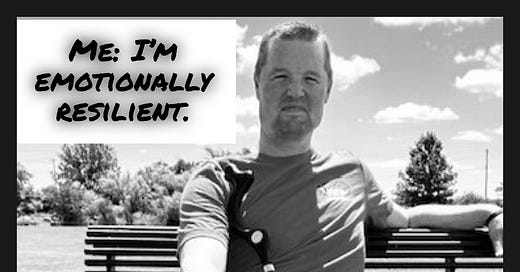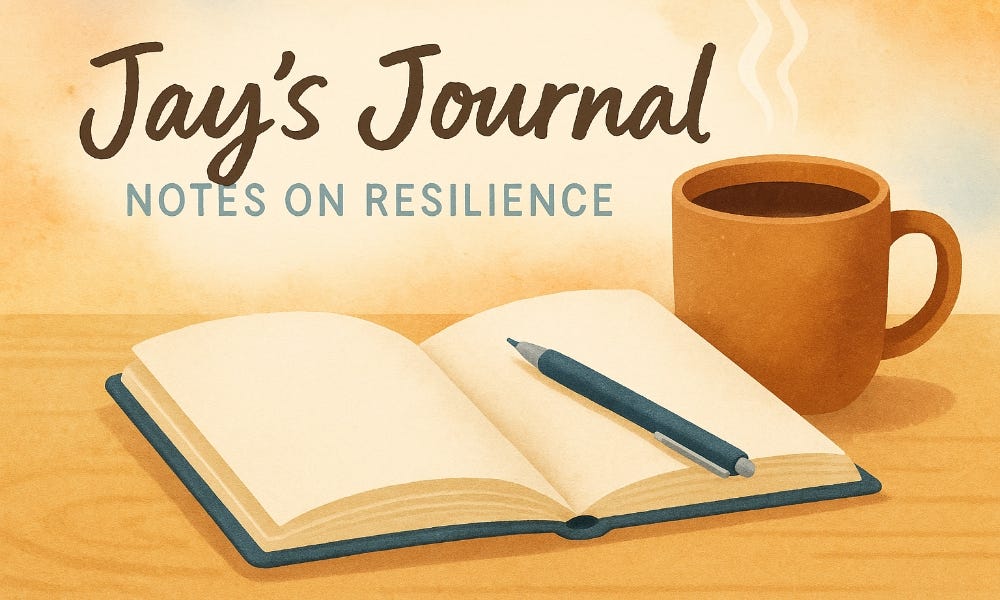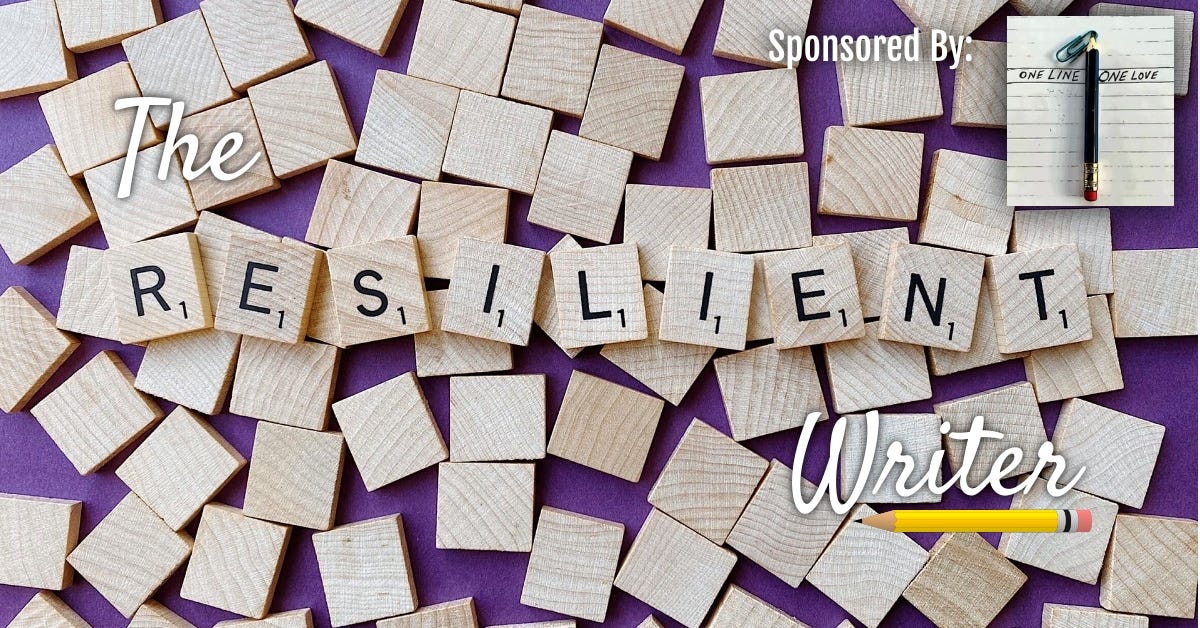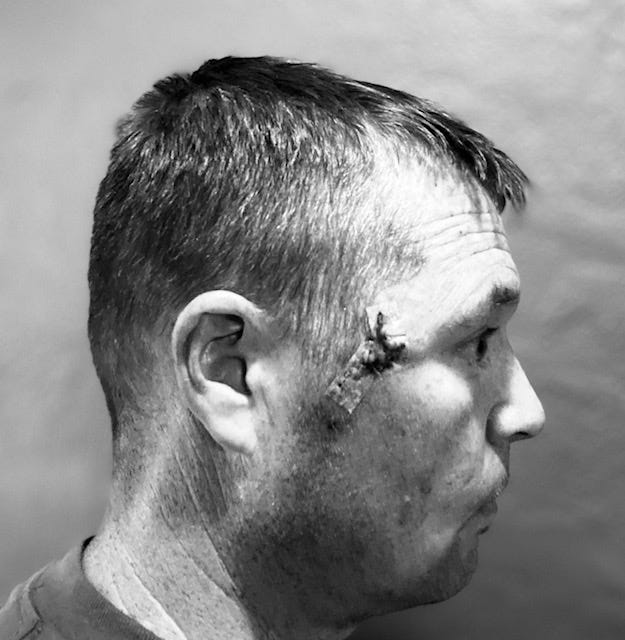📓 Notes on Resilience: The Fine People
Ever notice how many of us are out here looking “fine”?
Not great. Not thriving. Just… fine.
That vague, suspicious word we learned to weaponize in adulthood—because saying,
“My body feels like an old fax machine caught in a thunderstorm” tends to make people uncomfortable in the checkout line.
I’m one of those fine people.
I live with an invisible illness that doesn’t show up in lab results—but shows up everywhere else.
I look fine while my legs argue with gravity.
I look fine while my brain forgets the word I said five seconds ago.
I look fine while navigating the emotional gymnastics of needing help but not wanting pity—being tired but not lazy, in pain but still posting a meme about cheese.
And yes—sometimes I even look cute doing it.
(Don’t worry, I’m still humble. Mostly. Unless I land a good hair day before a neurology appointment.)
But here’s the thing:
Looking fine doesn’t mean life is easy.
It means I’ve gotten really good at the daily performance of resilience.
Smile. Nod. Minimize the limp if I can.
Crack a joke before anyone gets too sincere.
It’s wild how much effort goes into passing as “normal.”
Ever had to explain why stairs feel like betrayal?
Why fatigue isn’t just tired—it’s bone-deep, can’t-nap-it-away exhaustion?
Why the hardest part of the day isn’t the symptoms, but the performance of being okay?
We—the fine people—walk into rooms like we belong,
even when our bodies didn’t get the invite.
We juggle mobility aids and medical appointments, grief and gratitude,
disability and dignity.
We put one shaky foot in front of the other and dare to live full, beautiful, complicated lives in a world that still thinks accessibility is optional.
So if no one told you today: I see you.
The you behind the “fine.”
The you carrying a chronic condition no one else can see.
The you doing hard things with soft strength.
The you who deserves compassion—even on your “good” days.
Let’s stop measuring resilience by how invisible the struggle is.
Let’s stop equating silence with strength.
And maybe—just maybe—we can retire fine,
and start telling the whole truth.
Even if it’s a little messy.
Even if it’s a little funny.
Even if it starts with, “Well… I’m still vertical. So, there’s that.”
💭 What Stayed With Me…
Some weeks, it’s a quote. Other times, it’s something a nurse said in passing, or a lyric I heard in a waiting room that hit harder than expected. This section is where I share the quiet lines that linger—the ones that help me hold steady or crack me wide open. They’re not loud. But they stay. And if they stayed with me, maybe they’ll mean something to you, too.
“Pain screams. Purpose whispers.”
💌 Know someone who needs this?
Forward this newsletter to a friend, a fellow weary warrior, or that one person who gets it. You never know who’s sitting quietly, waiting to feel seen.
And hey—if they roll their eyes at emotional honesty and self-deprecating wisdom, that’s okay. Forward it anyway. You’ll be doing your part for the greater good (and possibly annoying them just enough to spark reflection).
Or check out my books—resilience looks great on your nightstand!
Soft Pants👖 Strong Spirits 🔥Can't Lose!
One Line, One Love: The Resilient Writer
🎙️ Episode 71: In this episode, Gail shares a tender, funny, and quietly powerful story about losing her hair during breast cancer treatment—and how that loss uncovered a whole new layer of creativity. Jay listens in, asking thoughtful questions as they explore how the hardest moments in life often become the richest material for art, healing, and self-expression. It’s a conversation full of grit, grace, and unexpected beauty in the mess. Together, they reflect on the strange alchemy of turning pain into something meaningful, and how telling your story can be a form of resistance, reinvention, and release. A must-listen for anyone who's been cracked open by hardship—and found a little light pouring through.
Jay Armstrong is an award-winning author and speaker who refuses to be defined by his diagnosis of a rare neurological disease. Despite challenges with movement, balance, eyesight, and speech, Jay continues to press forward with determination, humor, and hope. As the leader of the Philadelphia Ataxia Support Group, he’s dedicated to helping others find joy, peace, and meaning in their lives, no matter the obstacles they face.










My dad just left after a weekend visit in which I actively listened to many stories from his life. I am blown away by his astute memory!
Often when I call him and ask, “How are you Dad?” — his version of “vertical” is “I’m still sucking air.” 🤭
There are so many "quiet lines that linger" in this, Jay. I love this one: "Why the hardest part of the day isn’t the symptoms, but the performance of being okay?"